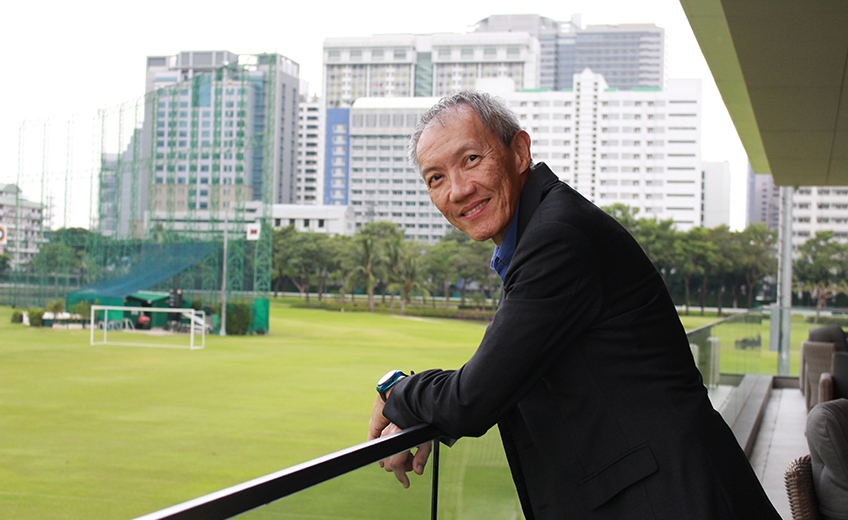Digital disruption has been a factor in shortening many careers. Many in the financial sector or textile industry, factory workers, airline staff and even taxi drivers have been made redundant by machines, apps and robots. Yet one profession is likely to be spared. That lucky metier is teachers, one of the oldest professions in the world.
So far, Forbes or CNN lists of jobs being replaced by technology do not include the teaching profession. On the contrary, not only has the need for teachers remained steady or grown, but the profession may well be enhanced by digital technology. Technology and artificial intelligence (AI) may be more efficient than humans in many fields, but they are dumb when it comes to teaching.
Prof Prabhas Chongstitvatana, lecturer of computer engineering and artificial intelligence at the Faculty of Engineering at Chulalongkorn University, sat down with Elite+ for an exclusive interview on the subject. He is a renowned expert on robotics and evolutionary computation.
“Artificial intelligence cannot compete with teachers,” Prof Prabhas said. “Machines cannot teach because they do not know who students are. After all, teaching is an activity conducted between human and humans.
“Maybe they [robots] can be programmed on how to teach students in the next few hundred years,” he added with a laugh.
The truth is that the role of teachers is too large for robots to fill. More than just imparting knowledge, teachers have the additional roles of instilling morality and guiding behaviour, helping children be good people, play with friends and socialize. “Definitely, robots cannot fill that role,” he said.
On the contrary, opportunities for teachers may be bright in a digital world. The internet and online classes can give teachers boundless access to students. Through digital media, a teacher can have hundreds, thousands or even millions of students.
“Such a thing was not imaginable in the old days when teachers only taught students in physical classrooms,” Prof Prabhas said.
Traditional classrooms and rote learning – things predominant in Thai education – will gradually be replaced by online courses and even virtual universities. Students, he said, will choose what they want to learn and turn their backs on teachers who fail to engage them with interesting and relevant lessons.
“The future of education will shift from uniformity to diversity. Students will learn what they want to learn. They will not be forced to learn what we want them to. Schools in the future will not be confined by geography. People can learn from everywhere besides their schools.”
Prof Prabhas predicts that the demand for education will rise, since in the future people will not stick to the same job for decades or until they retire. More frequent job changes will prompt people to acquire new knowledge as they jump to new areas. “There will be more students in the future. People will rush to learn new things in order to get jobs.”
Digital technology such as multimedia resources, animation and 3D can help make lessons more fun and interactive for students. “Teachers can be a rock star … they can launch a class online for thousands of students or more.”
But opportunities will go to teachers who can adapt and can make use of technology. Pedagogues who cannot use digital innovation to communicate and keep students engaged may see more empty classrooms.
While the future for teachers is full of promise, Prof Prabhas worries that education in Thailand might not be. For him, the Ministry of Education has steered the education system “in the wrong direction” for the modern world.
Thai education has long been dictated by the central government, which usually prescribes uniform policies and similar curriculums for all without paying attention to local diversity. That centralization goes against the trend, he said. In a digital society, there will be more diversity and more choices for people to learn from. “Perhaps the central government believes that a single standard is the same thing as quality. But it is not the same.”
It is not that the government is not trying to change. An example is the latest decision to merge the Office of Higher Education that oversees universities with the Ministry of Science and Technology.
There is a false myth in Thailand, he said, that has policymakers believe workplace restructuring will solve problems and lead to change. “How can we implement change when we only restructure work organizations but retain the same mindset?”
Prof Prabhas thinks the Ministry of Education needs to “let go of its centralizing policy” and let schools and educators decide what they want to teach and learn. “The central government’s role in the future may only be to oversee and audit schools, curriculums and teachers.”
To address specific problems such as falling PISA scores and inequality between schools in rural and urban areas, Prof Prabhas thinks the government can set up special task forces.
And as a pedagogue himself, Prof Prabhas believes the Ministry of Education should help improve the livelihood of teachers by solving debt problems and nurturing excellence. Improving the quality of teachers is key to success in education.
Teachers nowadays are in a difficult situation, he said, and improving their quality of life is one of the real challenges for the Ministry of Education.





















































































































































































































































































































































































































































































































































































































































































































































































































